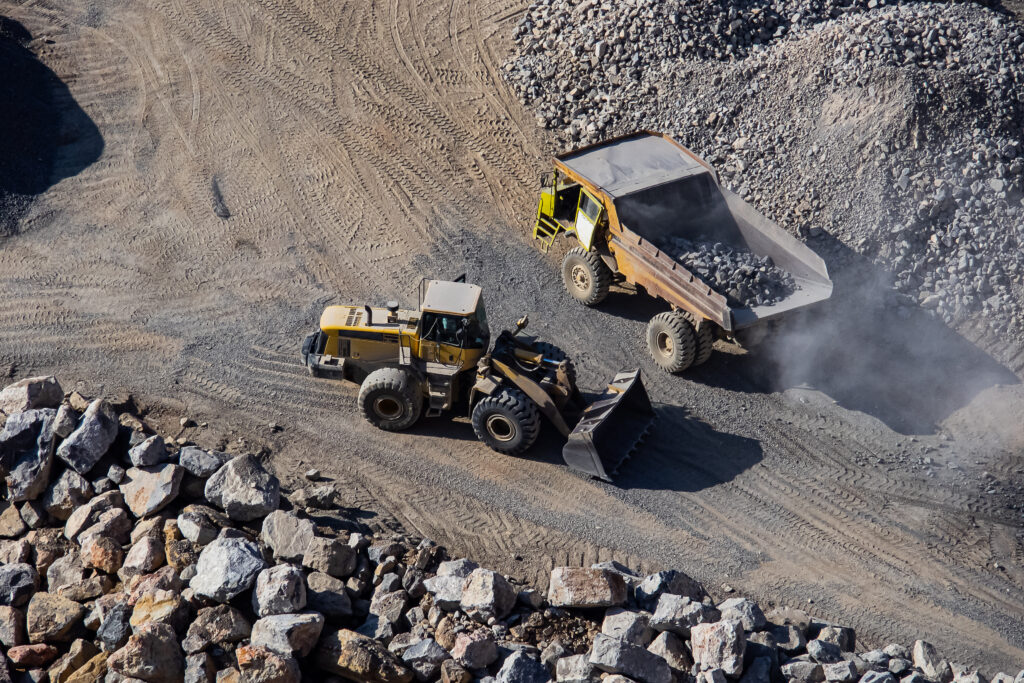The Jadar mine has recently hit the headlines with the announcement that it could be granted ‘strategic project’ status under the European Union’s (EU) Critical Raw Materials Act. This lithium mine, discovered in 2004, had been granted an operating license by the Serbian government in 2017, before massive protests in 2021 led to the withdrawal of the license. Eventually, the lithium mine in Western Serbia did not obtain this status, as the European Commission first selected projects from EU Member States, while leaving the door open for the ‘selection of such projects [in third countries to] be made at a later stage’.[1] With or without this status, there is no doubt that this mine represents a strategic interest for the EU. The media and legal unfolding surrounding Jadar in recent years reveal the EU’s contradictions, as it struggles to juggle between its strategic interest and the defense of its fundamental values, in this particular case, environmental protection and the rule of law.
Environmental protection vs strategic interests
The Jadar mine presents the paradox of being both crucial to the ecological transition the European Union intends to carry out because of the lithium reserves it contains and, at the same time, of representing a danger to the environment because of the extraction of this very same lithium.
As the EU tries to successfully navigate its green transition, the Jadar mine undoubtedly represents a major opportunity for its Member States, and in particular for Germany and its powerful automotive industry. The Green Deal adopted by the EU in 2020 sets the objective of making Europe the first carbon-neutral continent by 2050, thus requiring the most carbon-intensive industries and sectors to transition to cleaner energy sources, such as electricity. Lithium is a key resource in this transition, as it is a central element of the batteries used to store electricity. This raw material is considered critical because of its scarcity and the role it is vowed to play in world geopolitics in the years to come, with its demand expected to grow by 500% by 2050.[2] According to scientists, despite representing only 1% of the world’s lithium reserves,[3] the Jadar mine could cover up to 90% of European needs in this raw material.[4] This would allow the EU to reach a certain level of strategic autonomy toward China, which holds a quasi-monopoly over world lithium reserves. The signing of the Memorandum of Understanding[5] on critical raw materials between the EU and Serbia in July 2024 is an indication that the 27 are aware of the importance of the Jadar mine, whose minerals would be even more safeguarded in a Serbia that is a member of the EU.
In the meantime, it must be stated that the extraction process of lithium has harmful consequences on the surrounding environment. In addition to the deforestation and the expropriation of thousands that the mine’s exploitation would cause, it would also durably pollute the soils and water reserves of the region. The chemical extraction process used to extract lithium consumes large amounts of water and releases important quantities of acid. This polluted water then runs down the mine, contaminating the surrounding groundwater bodies and rivers. A study by the scientific journal Nature[6] showed that the simple exploratory drilling conducted in Jadar have already led to the pollution of several nearby rivers to boron, arsenic, and lithium, raising fears that in the long run, the water of nearly 2.5 million inhabitants could be contaminated. This dramatic impact on the local communities led to important demonstrations and shed light on the contradiction between the EU’s long-term strategic interests and the short-term harmful impact on local communities.
Rule of law vs strategic interests
The Rule of law is one of the EU’s fundamental values, as stated in the 2nd article of the Treaty on the European Union. It is also a principle that lies at the heart of the Jadar mine controversy, both due to its handling by Serbia and by the EU.
Back in 2021, the Jadar mine showcased Serbian President Aleksandar Vučić’s complicated relationship with the notion of the rule of law. Contradicting the Serbian Law on Mining and Geological Research, which stipulates that expropriation in protected areas can only be justified in the ‘public interest’, his party adopted amendments to the law on expropriation to make this notion more flexible and vaguer, giving the executive branch the power to characterize such projects, thereby facilitating the exploitation of the Jadar mine by the Anglo-Australian giant Rio Tinto.[7] Massive demonstrations were subsequently organized, denouncing both the ecocidal nature of the project and Vučić’s perceived undermining of the public interest in the name of economic interests. Faced with the pressure, the Serbian government decided to revoke Rio Tinto’s operating license and withdraw the controversial amendments, a U-turn later ruled unconstitutional by the Constitutional Court in July 2024.[8]
But this is not the only time that Vučić has breached the rule of law. The European Commission’s 2024 report on the rule of law in Serbia noted that ‘political pressure on the judiciary and the prosecution service remain high’ and that ‘the safety of journalists is a source of concern as is the growing pressure by abusive lawsuits’.[9] In the meantime, during Vučić’s time in power, Serbia’s ranking in Transparency International’s Corruption Perception Index has plummeted from 72nd out of 180 in 2016, to 105th in 2024[10]. In 2012, following the granting of the candidacy status by the EU, Serbia nonetheless embarked on an EU accession process at the heart of which lies the respect for the EU fundamental values, including the rule of law. Since then, 22 chapters of negotiations out of 35 have been opened, while only 2 are provisionally closed. The road to Serbia’s EU accession remains long, but questions arise as to whether, on this road, the EU is prioritizing respect for values such as the rule of law or its strategic interests. The aforementioned statistics and the relative lack of reaction to the ongoing student movement repression by Vučić‘s regime raise fears that Brussels is turning a blind eye to the Serbian president’s authoritarian drift in a bid to protect its strategic interests.
It, therefore, seems crucial for the EU to reflect on the true nature of its strategic interests: the lithium from the Jadar mine or the support of a population that upholds the same values as it does? The case of the Jadar mine is symptomatic of the EU’s contradictions and of the (strategic) arbitrations it will sooner or later have to make.
[1] https://www.serbianmonitor.com/en/european-commission-explains-why-jadar-is-not-on-the-list-of-strategic-projects/
[2] https://www.worldbank.org/en/topic/extractiveindustries/brief/climate-smart-mining-minerals-for-climate-action
[3] Ambrose, H. & Kendall, A. Understanding the future of lithium: Part 1, resource model. J. Ind. Ecol. 24(1), 80–89 (2020)
[4] https://www.reuters.com/business/rio-tinto-keen-restart-talks-stalled-serbian-lithium-project-2022-05-05/
[5] https://ec.europa.eu/commission/presscorner/detail/en/ip_24_3922
[6] https://www.nature.com/articles/s41598-024-68072-9
[7] https://www.ucl.ac.uk/law-environment/blog-climate-change-and-rule-law/race-lithium-and-rule-law
[8] https://balkaninsight.com/2024/07/11/serbian-court-ruling-on-scrapped-lithium-mine-dismays-environmentalists/
[9] https://commission.europa.eu/document/download/862952fa-6e79-44c4-b629-174a441e3d2e_en?filename=62_1_58091_coun_chap_serbia_sb.pdf








